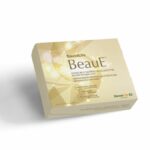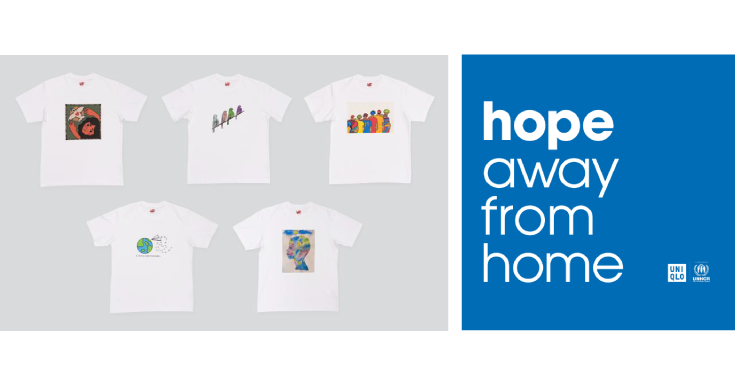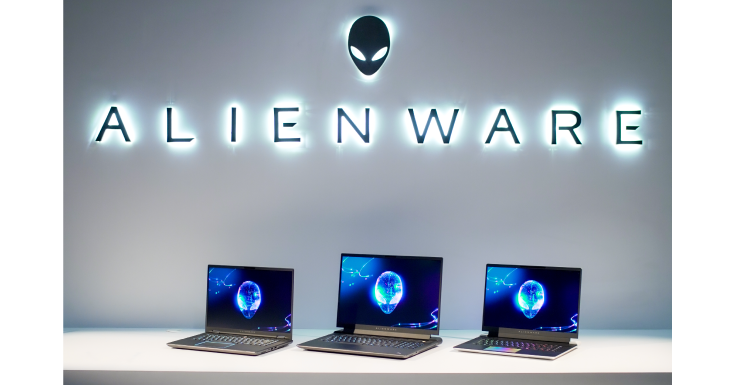Raising the Bar on All Natural Parenting
As commendable as it is, the decision to raise an-all natural child need not be a do or die endeavor. In fact, it’s quite impossible to take on drastic changes to one’s lifestyle, especially in these modern, chemically-inclined times. What parents can do is to identify the main areas in life which can be altered or changed to bring about a greener, more sustainable way of life. As commendable as it is, the decision to raise an-all natural child need not be a do or die endeavor. In fact, it’s quite impossible to take on drastic changes to one’s lifestyle, especially in these modern, chemically-inclined times. What parents can do is to identify the main areas in life which can be altered or changed to bring about a greener, more sustainable way of life.
Table of Contents
Breastfeed your baby
You’ve heard it again and again and here it is once more: There is no better food for baby for his first few months in life other than your own milk. It’s the gold-standard of nutrition for your newborn and it goes a long way in paving the path for a healthier future for your child. Beast feeding is not only economical and convenient, it’s also a mother’s greatest gift towards her baby’s health.
Food talk
This is basically the ability to identify between what’s healthy and what’s not, and if you start on the pursuit of healthier choices in food yourself, you automatically pave the way for your offspring to eat green and healthy. If you’re planning to go down the green route in living, there’s no better time to begin than when you’re pregnant and since what you consume is passed to your baby, get to know your food choices better. When your baby is ready for solid foods, the same principles should be observed to encourage the consumption of a wholesome, healthy diet.
Pesticides in produce
Pesticides can do grave damage to a developing fetus and even trace amounts in the food is capable of doing harm. However, since organic produce can be pretty expensive to buy on a daily basis, Robert Sears, M.D., co-author of HappyBaby: The Organic Guide to Baby’s First 24 Months, recommends choosing certain foods from the organic section of the supermarket. These foods are listed as the Dirty Dozen, as they are most contaminated with pesticides compared to other fruits and vegetables.
The Dirty Dozen are:
- Apples
- Grapes
- Celery
- Spinach
- Sweet bell peppers
- Lettuce
- Peaches
- Cucumbers
- Strawberries
- Blueberries
- Nectarines
- Potatoes
Remember though, that both the dirty and clean produce lists were compiled after they were washed and cleaned with high-pressure water systems, the kind that we do not normally have in our home kitchens. While the thought of totally removing all stubborn traces of pesticide contamination is unfortunately a fantasy for a normal household, it’s still necessary to what you can to reduce the exposure of chemical contaminants. For this purpose, many brands have come up with safe fruit and vegetable cleansers that can help. Check out tried and trusted cleansing products from Pigeon, Pureen and BabyOrganix, just to name a few.
In comparison, there are some produce that is alright to be purchased from the conventional section of a supermarket. While thorough cleaning of these is still recommended, the risk of pesticide ingestion is not as high as the Dirty Dozen. These are compiled in a list called the Clean 15. You may be wondering though, why do some produce carry less risk factors than other? Richard Wiles, senior vice president of policy for the Environmental Working Group explained, “If you eat something like a pineapple or sweet corn, they have a protection defense because of the outer layer of skin.” That certainly makes sense, for if you think about it, the same cannot be said about foods such as strawberries and cucumbers, for instance which have really thin, easily permeable outer layers.
The Clean 15:
- Onions
- Sweet peas
- Cantaloupe
- Sweet Corn
- Asparagus
- Sweet potatoes
- Pineapples
- Mangoes
- Grapefruit
- Avocado
- Eggplant
- Watermelon
- Cabbage
- Kiwi
- Mushrooms
The dangers of Bisphenol A (BPA)
Not all mothers are able to breastfeed exclusively. There may be the need for formula milk or even expressed breast milk. In these cases, be sure to choose BPA-free bottles. BPA is a chemical found in many plastic containers, including baby bottles. It has estrogen-like effects that may disrupt an infant’s hormonal and sexual development. Be wary too of BPA present in items such as pacifiers and baby teething toys.
Clean air
The air your family breathes at home may seem clean, but there may be contaminants in it that you cannot see or smell. Fumes from harsh cleaning products, secondhand smoke and residue from building materials can all enter the human lung and long term exposure can cause considerable harm. For the sake of fresher, cleaner air in the house, first and foremost, disallow smoking (at least in the house!). Also, keep the doors and windows open whenever possible to let in some fresh air.
Another way to keep the air in your home cleaner and fresher is via potted house plants. They not only help keep oxygen levels up, but they are also useful in removing pollutants from indoor air. In fact, certain plants can rid a room of up to 89 percent of harmful VOCs like formaldehyde and xylene. Compared to the prices of some of those fancy air filtration systems out there, it’s surprising that more of us don’t just purchase some plants instead. The following 10 house-plants are deemed safe to be planted at home:
- Orchids
- Baby Rubber plant (Peperomia)
- Ferns
- Donkey’s tail
- Peace lilies
- Fittonia (Mosiac plant)
- Potted palms
- Spider plant
- Song of India
- Rabbit’s tracks
Banish poisonous cleaning products
More and more manufacturers of cleaning products are now jumping into the organic bandwagon, producing safer, more natural-based floor washes, laundry detergents, dish-washing liquids and toilet cleaners. These products however, might be a tad on the expensive side, and for families who have to watch their household spending, they may not seem like a the best natural solution, pun intended! Fortunately, you can make use of some everyday items you already have in your fridge or pantry.
Vinegar, for example, is an antiseptic that kills most bacteria, viruses and mold. Hydrogen peroxide also has the same antiseptic qualities and is considered a safe and natural cleanser. By pouring vinegar and hydrogen peroxide into two separate spray bottles and using in tandem, you can effectively clean kitchen surfaces, counter-tops and even cutting boards. Other natural cleaning agents to try: baking soda for scouring stove tops, and lemon, which kills household bacteria and removes rust from copper and stainless-steel pots and pans.
Be kind on the skin
With the birth of a baby comes the buying of all sorts of products to care for the little one’s skin and hair. While most mums anticipate buying these products with glee, this is one area of raising a green baby that you might want to spend a little bit more attention on, for many baby skincare items are loaded with ingredients that are simply not good for a baby’s skin (or for yours!). We recommend you buy organic when it comes to anything you have to put on your baby’s skin and hair. These days, as more and more brands manufacture their own line of organic baby skin and hair-care products, the prizes of these products are getting quite affordable.
For parents’ information and guide, here is a small list of some commonly used substances in baby skin care products and the adverse impact they have on the skin.
- Mineral Oil/Petroleum Gel – Corrosive, leaves the skin dry and chokes the skin’s pores. They also interfere with sebum production, causing a baby’s skin to dry out. May cause itches and irritations too, especially in sensitive skin.
- Chemical-based colors – May cause itches and irritations. Harmful for the eyes, skin, and internal organs if accidentally ingested.
- Detergents/Soaps – Present in baby soaps and shampoos, these are some of the most harmful substances, no matter how mild they may be. They are very harsh and very corrosive and can cause severe damage to the skin, eyes, and hair.
- Antibiotic/Disinfectant/Antiseptic – These substances are known to kill microbes or terminate any biotic growth, so it goes without saying that they are indeed poisonous!
- Metal Oxalates/Metal Salts – Compounds of zinc, sulphur, lead, and even mercury. Long-term use can be severely toxic to some children with sensitive systems and may lead to nerve damage too.
- Tap Water – Often contains hard bleach and/or chlorine, both of which are highly corrosive.
Diaper with love!
Having a baby means having to go through dozens of diaper changes! Disposable diapers are the most popular choice of modern parents despite the fact that they can be quite pricey! Count if you will, about how many diapers you use in a week and multiply it by the 52 weeks in the year. Now, that’s a lot to spend in a yearly basis till your little one is potty-trained, isn’t it? Now, compare that figure to the cost of using cloth diapers. You may have to invest a bit up front, but you don’t have to shop for a new pack on a regular basis.
There are still mums out there who think that cloth diapers are annoying and inconvenient. What they don’t realize is that cloth diapers have changed since we were kids! Diaper pins have been replaced with convenient snappies and Velcro-like materials. You can also get fitted diapers to help stop leaks.
With modern cloth diapers, you do not have to settle with plastic covers if you don’t fancy them, for you can get wool ones too. These also can be found in an array of adorable patterns and designs. There are also all-in-one cloth diapers that require no folding, no liners and can be thrown straight into the wash. Pocket diapers are also an excellent bridge from disposables to cloth. They can be bought along with super-absorbent diaper inserts to keep a baby dry and comfy.
When it comes to diapering your baby, here are some tips to consider:
- Always wash full loads for maximum efficiency.
- Wash diapers in cold water.
- Use a high-efficiency machine.
- Hang your diapers instead of using a dryer.
- Don’t iron diapers.
- Save diapers for your next baby.
- If you use a diaper service, ask them about their washing methods.
- Cloth diapers can be washed and used over and over again! What a meaningful way to save the environment, save some cash, and raise your baby in a natural, green way.
Keep baby gear to the minimal
Resist the urge to over-buy baby stuff, for babies outgrow almost everything very quickly! So, instead of a pricey bassinet for example, put your baby in the crib right away and your little one will be able to use it through several stages of development. Think basics when it comes to your baby stuff and you will cut down on wastage as well as save yourself from burning holes in your pocket!
Consider too, getting second hand baby items from family and friends. Make sure to check for the status of product recalls and mind the expiration dates. If you can manage to get around that, you’ll be well on your way to saving lots of cash, and on the longer term, you will be doing your part in minimising trash loaded into landfills!
Baby clothing
When shopping for clothes for your bundle of joy, look for the 100% certified organic cotton on the label, and avoid synthetic fibers. These not only keep baby cool, but they’re kind to your baby’s skin. You can also look out for gently used baby clothing at garage sales, thrift stores, and consignment shops. You can be sure that these items of clothing have been washed and any chemical residues would be gone.





















Leave a comment